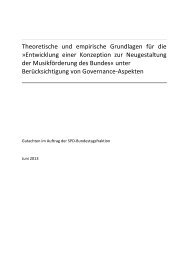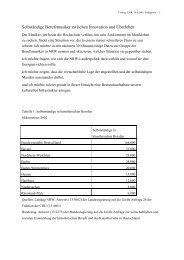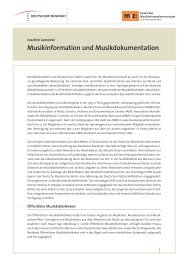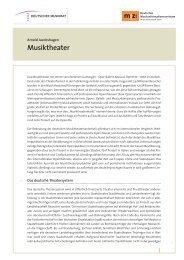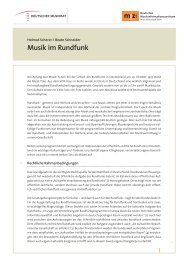Create successful ePaper yourself
Turn your PDF publications into a flip-book with our unique Google optimized e-Paper software.
“ There have to be sanctions, ISPs have to be involved and there<br />
needs to be back-up legislation. I would have preferred a purely<br />
commercial solution to achieve this, but sadly it doesn’t look<br />
as if that is going to happen. That is why there needs to<br />
be the encouragement coming from legislation.”<br />
Martin Mills, Chairman, Beggars Group<br />
Case studies, creative industries<br />
There are indications, in Sweden<br />
and South Korea, of the positive<br />
impact of a strengthened copyright<br />
environment on curbing piracy and<br />
enhancing legitimate sales.<br />
Case studies in this report show<br />
improved music sales in those countries<br />
in 2009, though sustained action will be<br />
needed to maintain this progress.<br />
<strong>Digital</strong> piracy rose sharply on the<br />
agenda of all creative industries in<br />
2009. With the rapid advance of<br />
technology, games manufacturers,<br />
film and television producers and<br />
book publishers are now facing the<br />
same challenges felt by the music<br />
industry at the start of the decade.<br />
Simon Renshaw, artist manager, says<br />
“What I worry about is that we are<br />
heading into a world where copyright<br />
has no value and where there’s<br />
no incentive for anyone to provide<br />
patronage and support for the creators<br />
of intellectual property.”<br />
Consumer education<br />
Consumer education has a vital role<br />
to play, and the music industry is<br />
currently involved in more than 70<br />
awareness programmes across the<br />
world. It is clear however, that consumer<br />
education alone, while it has effectively<br />
raised awareness of the legal and<br />
ethical issues around unauthorised<br />
downloading, does not change<br />
consumer behaviour. Good legitimate<br />
music offerings and meaningful<br />
deterrence are vital in this process.<br />
Legislation, ISP cooperation<br />
The music industry and other creative<br />
sectors around the world are seeking<br />
to engage ISPs in curbing digital piracy<br />
on their networks. In most countries,<br />
this requires help from governments in<br />
establishing a consistent and effective<br />
response from the entire ISP community.<br />
The most widely considered approach<br />
so far is a graduated response model,<br />
involving escalating warnings to infringers<br />
culminating, as a last resort for those<br />
who refuse to stop, in he sanction of<br />
temporary account suspension. The<br />
graduated response is a proportionate,<br />
effective way to curb piracy.<br />
<strong>IFPI</strong> first called for ISPs to cooperate<br />
in a graduated response system in<br />
2005. Five years later, voluntary<br />
means have largely failed to progress.<br />
A number of governments however,<br />
including France, UK, New Zealand,<br />
South Korea and Taiwan, have enacted<br />
legislation to require such cooperation<br />
or are in the process of doing so. n<br />
“ A decade’s worth of music file-sharing and swiping has<br />
made clear that the people it hurts are the creators...<br />
and the people this reverse Robin Hooding benefits are<br />
rich service providers, whose swollen profits perfectly mirror<br />
the lost receipts of the music business.”<br />
Bono, singer-songwriter, in the New York Times, January <strong>2010</strong><br />
7<br />
Executive Summary




